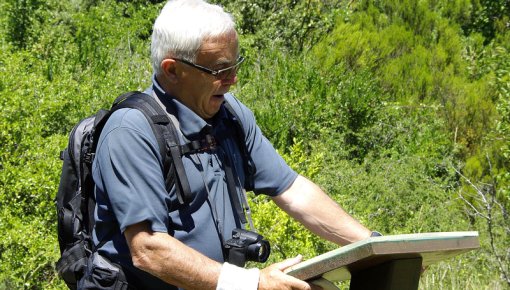It felt like a life-threatening problem
It used to scare me, and it felt like a life-threatening problem, so we often drove to the hospital. Once it was so bad that I was taken to the intensive care unit. They wanted to give me electric shocks to make my heart beat at a normal rhythm again. But I was worried and called my family doctor first to ask him what he thought, and about the risks. He said there was no reason not to do it. I was then given a general anesthetic, so I didn’t notice a thing during the procedure. And my heartbeat was back to a normal rhythm after that. But that didn’t last long. It started fluttering again about four weeks later.

